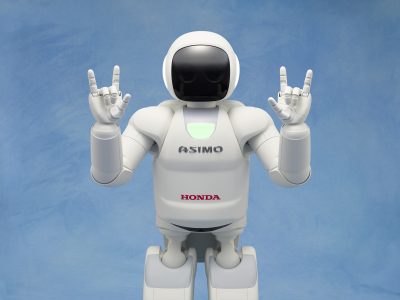Honda Launches New AI Research Center in Tokyo - Dispatch Weekly
October 31, 2016 - Reading time: 6 minutes

Honda has chosen to launch its AI Research Center in Tokyo rather than Silicon Valley, allowing researchers and engineers to work together to bring products to market.
The new lab will integrate Honda’s AI team in Silicon Valley, Europe and Japan at the Tokyo location, according to Yoshiyuki Matsumoto, president of the automaker’s heavily independent research arm.
He said that the headquarters would bring scientists and developers to lead AI-enabled products that consumers want to buy.
The Rush Towards AI: Fascinating Facts

Artificial Intelligence (AI) is growing quickly with businesses keen to capitalize on the trend, which is already infiltrating everyday life.
From Apple’s Siri, to IBM’s Watson, to Amazon’s Alexa, AI will soon move into our homes and devices affecting how we interact with objects.
OneReach, an omnichannel automation collected AI statistics that show exciting developments within the AI industry:
- More than $300 million was invested in venture capital in AI startups in 2014, a 300 percent increase over the year before (Bloomberg)
- By 2018, six billion connected devices will proactively ask for support (Gartner)
- By 2020, 80 percent of customer interactions will be managed without a human (Gartner)
Innovation, Talent and Competition

Matsumoto stressed that innovation is pivotal to the lab, “We won’t make much difference if we did the same things as everyone else in Silicon Valley. And not everyone has succeeded there.”
In order for autonomous driving to become fully functioning, Matsumoto sees AI, robotics, navigation, sensing and connectivity technologies as key components that must be optimized and understood.
Having the research center in Tokyo is a signal that Honda has the required talent in Japan to compete with Silicon Valley.
The Future of AI and Commercialization

Recently, major companies are trying to commercialize AI technologies into products for market consumption.
Examples are Toyota joining forces with Google and Facebook, adapting deep-learning capabilities for cars and mobility services.
Apple’s Siri is an example of AI in an everyday item that can be used in routine tasks.
Honda will use Japanese graduates and may collaborate with startups to increase AI capabilities, while using a more flexible work schedule than the typical rigid hierarchical Japanese work structure.
Investing in Robotics
Toyota will soon be selling a 4-inch robot called Kirobo Mini with AI capabilities in Japan in early 2017.
The company is working with SoftBank Group Corp. on car technologies to detect emotions of drivers, being able to talk to them.
Honda has also created Asimo humanoid robot that can understand gestures, postures and facial expressions, using its fingers.
What do you think the impact of AI will be in the next decade? Are you excited about the changes or worried about data and cyber security challenges?

DW Staff
David Lintott is the Editor-in-Chief, leading our team of talented freelance journalists. He specializes in covering culture, sport, and society. Originally from the decaying seaside town of Eastbourne, he attributes his insightful world-weariness to his roots in this unique setting.




